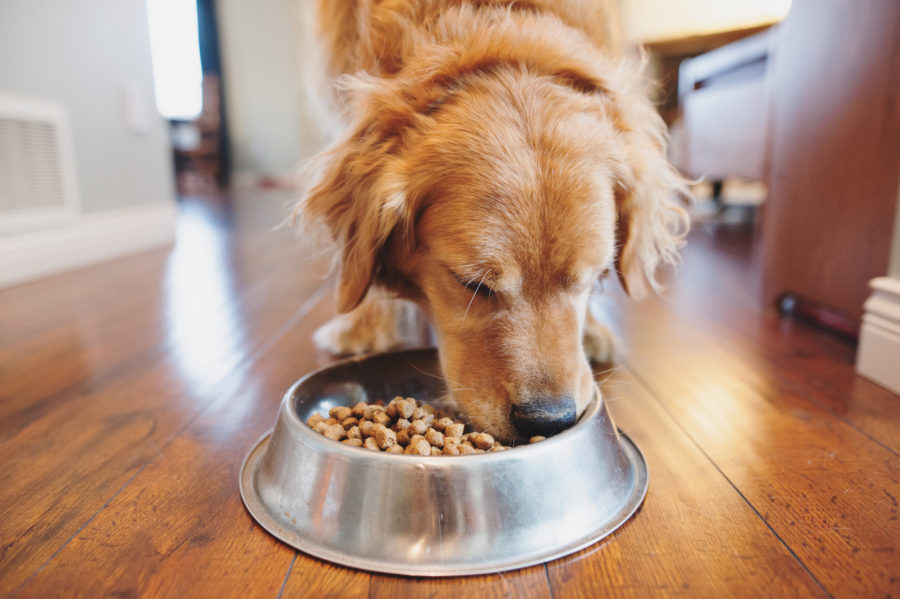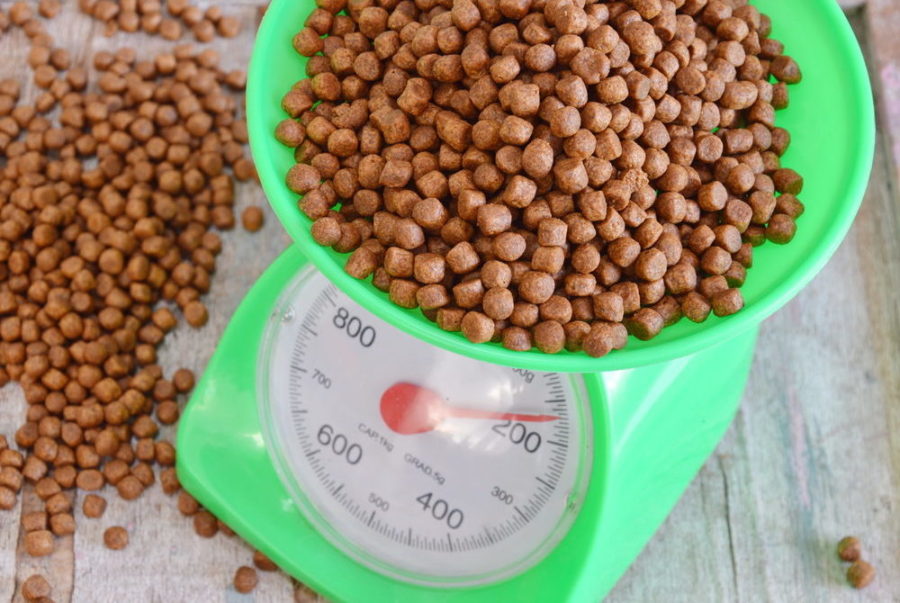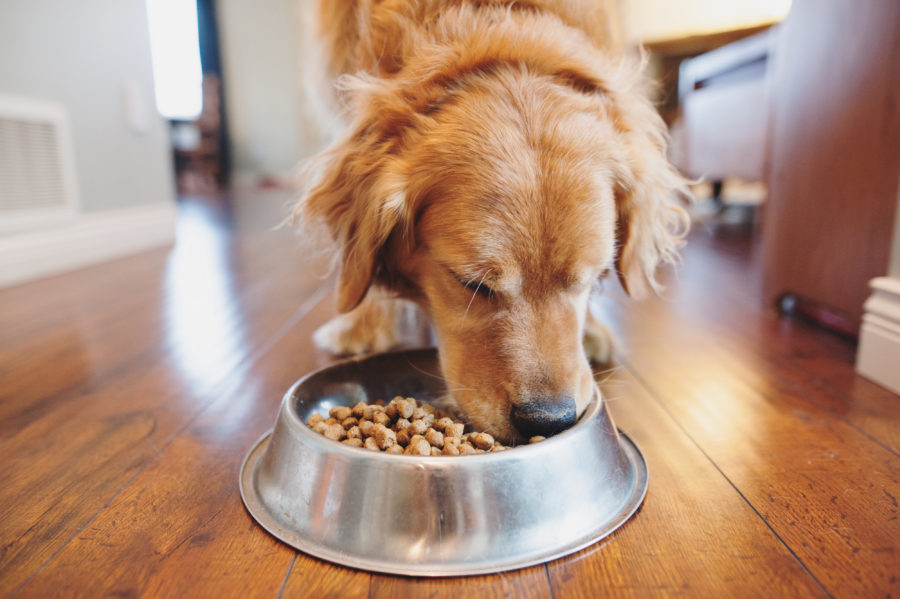It can be difficult to watch your senior pet deal with the hardships of aging. Closely monitoring his nutrition with the help of your vet is a great way to keep him happy and healthy through his golden years.
For humans and pets alike, growing older can mean graying hair, less energy and a myriad of other affects. While some of these aren’t cause for concern, the accompanying weight gain, heart disease, joint problems, hearing loss and poor eyesight can have a significant impact on overall health and well-being. It can be difficult when you see these issues in your pet, but there are many ways to support him as he ages. Let’s take a look at a few dietary changes you can make to keep your senior companion feeling – and looking – his best.
Weight gain
When it comes to your pet’s weight, the old adage that an ounce of prevention is worth a pound of cure still rings true. In other words, the best way to keep your dog healthy in his senior years is to maintain his weight from a young age. While a few extra pounds here and there might not seem like a big deal, it can significantly decrease his longevity – not to mention his quality of life. Overweight pets are more susceptible to heart disease, diabetes and joint problems, so making the appropriate dietary decisions is crucial.
If you are worried about your pet’s weight, start with your most important ally – your vet. A trusted professional can make sure weight gain is not the symptom of an underlying health condition. Once you know that, you can focus on moving forward. There are many great tools available online, like this one from the nutrition experts at Petcurean, which can help you create a nutritional plan for your pet’s individual needs. These resources will teach you what ingredients to avoid, what products to seek, and how feeding your companion a species-appropriate diet will go a long way toward giving him the nutrients he needs to thrive.
Joint problems
Joint problems are another common issue that comes with age and catches most pet parents by surprise. While it’s a common misconception that joint issues only affect large breed dogs, canines of all sizes can develop them – primarily as a result of obesity or lack of exercise.
Joint pain or mobility limitations can take away the things that bring a dog joy, like long walks or a good game of fetch. If you suspect your senior pooch is suffering from discomfort in his joints, look for a food or supplement that will give his joints the boost they need. Foods that contain anti-inflammatory ingredients like New Zealand green mussels and green leafy vegetables are ideal, and supplements that help protect cartilage – such as glucosamine and chondroitin – are perfect for dogs that need a little extra support.
It’s never too late to start your pet on a path to a healthier lifestyle. By seeking high-quality nutrition that supports him through the aging process, you can help your furry senior live his best life!






